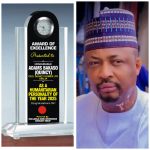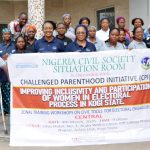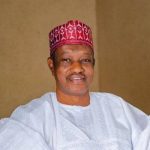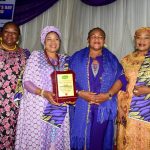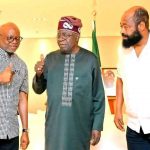Tinubu’s Two Years of Economic Reform: Between the Thorns of Transition and the Test of True Transformation
By Dr. Aiyeku Olufemi Samuel
Co-Founder & Lead Consultant, Global Human Capital & Energy Management
Governance Analyst | Development Economist | Policy Consultant | Strategic Development Advocate | Climate Action Enthusiast | PPP & CRM Specialist | Sustainability & Impact Investing Specialist | Social and Political Critic
Introduction
Two years into the Tinubu administration, Nigeria is navigating through a highly volatile economic terrain—where hope and hardship coexist in uneasy balance. While there are undeniable gains, equally glaring are the lapses in accountability, weak institutional coordination, and unpopular policies that have intensified citizen discomfort.
As a development economist, social critic, policy strategist, and risk advisory expert, this is not merely an evaluation but a diagnostic insight into the anatomy of our governance, where reforms must be paired with responsible leadership and deliberate human-centered outcomes.
The Gains of Reform:
Measurable Shifts in Economic Fundamentals
The Tinubu administration must be credited with having the political will to make bold moves, especially in areas where past governments only danced around the edges.
* Trade balance improved significantly to ₦5.7 trillion in Q1 2025 from a previously negative trajectory
* Oil production has climbed to 1.6 million barrels per day, helping close the budget gap
* Airline blocked funds have been cleared, restoring investor confidence in Nigeria’s aviation and foreign sectors
* Minimum wage raised from ₦30,000 to ₦70,000 — a necessary and long-awaited correction
* Foreign reserves climbed from $4 billion to \$23 billion, providing buffer against external shocks
* Monthly foreign inflows jumped from $654 million to \$15 billion, showing improved investor appetite
* GDP growth increased from 2.47% to 3.40%, reversing contraction trends
* Power generation rose from 4,000MW to 6,000MW, albeit still insufficient for national demand
* Fuel importation dropped from 44.6 million to 14.7 million litres daily, thanks to local refinery interventions
* Annual fuel subsidy bill eliminated, freeing up trillions for real infrastructure development
“Leadership is not about postponing the hard decisions. It is about choosing nationhood over convenience and posterity over populism.”
~ Dr. Aiyeku Olufemi Samuel
Are we making economic progress or merely adjusting the optics of macro-stability?
Progress is real, but uneven. Gains are not trickling down fast enough to the average Nigerian.
The Unvarnished Truth: Policy Pitfalls and the Crisis of Accountability
Despite the momentum of economic recalibration, there are disturbing governance weaknesses that can not be ignored:
* Poor communication of reforms: The sudden removal of fuel subsidies and FX liberalization, though necessary, lacked pre-implementation cushioning or citizen education, leaving millions confused and outraged
* Inflation crisis: Food inflation is above 42%, and general inflation at 33.69% (May 2025), devastating household incomes. The removal of subsidies without a robust social protection plan left many more vulnerable
* Naira volatility: Despite efforts at unification, the naira has experienced wild fluctuations, peaking at over ₦1,500\$1 before stabilizing, eroding public trust in monetary policy
* Policy uncertainty: Multiple fiscal announcements have lacked follow-through — such as the palliative funds for transport and food production — with no transparent tracking mechanisms in place
* Governance gaps: While economic data is improving, the Human Development Index remains poor, and accountability for public funds remains weak, especially at sub-national levels
* Over-centralization: The federal government continues to dominate fiscal space, stifling state-level innovation and undermining true federalism
* Poor coordination between agencies like the Central Bank, Ministry of Finance, and National Planning has at times led to conflicting signals to both investors and citizens
* Rising insecurity: Economic recovery has been hampered by rising banditry, kidnapping, and terrorism in parts of the North and Middle Belt, displacing farmers and threatening food security
“A reform without accountability is a revolution deferred. Transparency isn’t a luxury—it is the foundation of sustainable governance.”
~ Dr. Aiyeku Olufemi Samuel
A Balanced Lens: Achievements and Administrative Flaws in Context
The Tinubu government has shown resolve, but has struggled with execution. For example:
* While the Student Loan Act was signed into law, its implementation has been delayed, frustrating thousands of students
* The palliative rollouts promised for vulnerable Nigerians after subsidy removal were marred by bureaucratic bottlenecks and opacity
* Despite an improved capital market performance, insider trading, regulatory inefficiencies, and weak investor protection persist
* Job creation promises have not matched reality. Unemployment remains above 33%, and underemployment is rising due to automation and SME closures
* The Presidential Committee on Tax Reforms is a good start, but its outcomes remain slow, and multiple taxation issues still frustrate businesses
Can a government reform an economy if it can not reform its own system of governance?
Only when policy, accountability, and political integrity intersect does reform become sustainable.
Recommendations: Recalibrating the Reform Agenda for Inclusive Prosperity
* Design and deploy a citizen-centric national social register to target palliatives more effectively
* Institutionalize a National Performance Dashboard accessible to citizens — tracking progress, spending, and impact
* Empower states through true fiscal federalism and tax autonomy for self-sustaining sub-national economies
* Refocus education and health budgets — currently below UNESCO and WHO benchmarks — toward outcome-based planning
* Engage civil society, professional bodies, and youth groups in governance feedback loops
* Reestablish the Presidential Economic Advisory Council as an independent oversight body, not a political appendage
* Reduce cost of governance — particularly recurrent expenditure — and repurpose security votes to productive capital investments
Conclusion
Two years into President Tinubu’s administration, Nigeria stands at the crossroads of a painful past and a promising future. The reforms are necessary, bold, and measurable. But so are the flaws — in delivery, empathy, coordination, and communication.
The challenge now is not just to do the right things — but to do them the right way, at the right time, and for the right people. Reform without social justice becomes rebellion in slow motion.
Let us not be afraid of change — but we must demand better from those who lead it.
“When policy forgets the people, the people forget the government.”
~ Dr. Aiyeku Olufemi Samuel
“Good governance is not measured by promises but by performance, not by declarations but by data.”
~ Engr. Sani Ndanusa FNSE, FNICE,FNIM,MARAFAN NUPE
Dr. Aiyeku Olufemi Samuel
Co-Founder & Lead Consultant, Global Human Capital & Energy Management
Governance Analyst | Development Economist | Policy Consultant | Strategic Development Advocate | PPP Specialist | Risk Advisory & Strategic Innovation Advocate
#MakingRealSenseSeries
#TinubuReforms
#NigeriaEconomy
#PolicyDialogue
#GlobalHumanCapital
#GovernanceMatters
#EconomicJustice
#ReformWithEmpathy
#SustainableNigeria
#PPPStrategies
#SocialImpact
#ThinkPolicyActBold
#ReformOrPerish
#TransparencyInAction
#InclusiveReforms
#DataDrivenNigeria
#NationInTransition
#TheNigeriaWeWant
#AccountabilityNow
#StrategicDevelopmentHub
#GOD BLESS NIGERIA 🇳🇬

